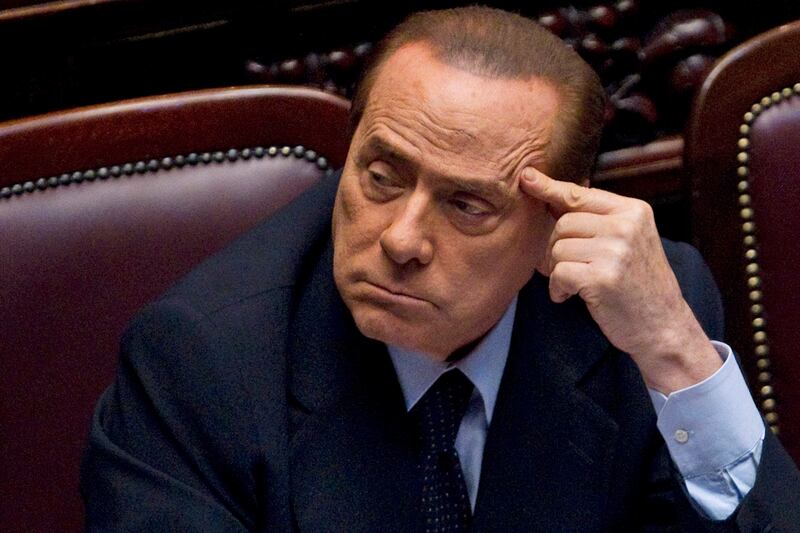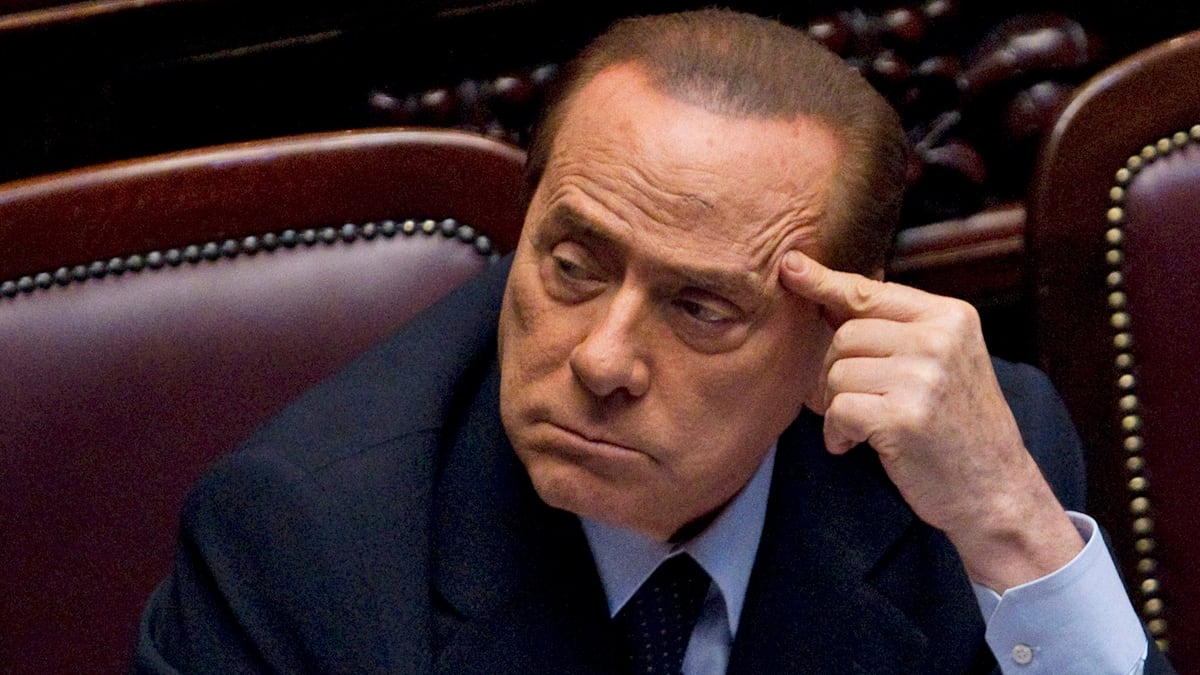Silvio Berlusconi has lost his Teflon shield. The 76-year-old former prime minister, who led Italy for nearly two decades before being sensationally booted from office last year, was convicted of tax fraud on Friday and sentenced to four years in prison–of which three years were suspended. He was also barred from holding public office for five years. It is unlikely the flamboyant media mogul will ever spend a day behind bars, but his conviction still sends a strong message that even the mighty fall.
Berlusconi is, of course, no stranger to trouble. In addition to the tax-fraud case, he is also on trial for having sex with an underage prostitute who pole-danced under the stage name Ruby the Heartbreaker, and for abusing his office when he allegedly called a Milan police station to spring her from jail on an unrelated offense. He has been in and out of Italian courtrooms since 1990, beating charges of corruption, bribery, and tax fraud relating to his vast holdings. He has faced judges 33 times, but thanks to power, luck, and laws he passed during his long tenure as head of state, he has escaped conviction all but three times, thanks to legal loopholes and statutes of limitations on white-collar crimes that make it easy to beat the system by stalling. His previous convictions were in 1997 and 1998, for bribing public officials and falsifying accounting records, but two convictions were overturned on appeal and one effectively timed out thanks to the statute of limitations he created.
Even if Berlusconi’s current conviction is overturned, or dissolved because of the statute of limitations set to expire early in the year, no doubt long before the appellate process is complete, the fact that he may be banned from holding public office is, in many ways, a bigger penance. It is perhaps no coincidence that Berlusconi announced earlier this week that he would not be running for office in next year’s elections. The curiously timed decision was one of the toughest he’s had to make, according to his spokesman, but he said he was doing it for the good of the country and to allow younger politicians to have their turn at power. In reality, perhaps the elder statesman resigned from public life because he knew his luck had run out.
ADVERTISEMENT

After all, taxes are a hot topic in Italy right now, and by convicting the former prime minister of a tax crime, the court sent a powerful message to everyday Italians, many of whom are facing their own tax troubles, that no one is above the law. Since coming to office last November in the wake of Berlusconi’s sensational resignation, Italy’s temporary technocratic prime minister, Mario Monti, has made tax evasion and tax fraud his primary focus. He has managed to reverse a number of fiscal favors Berlusconi granted during his tenure, including reinstating property tax on second homes and sending aggressive collectors out to gather up millions of euro worth of back taxes. Critics of Berlusconi say that he is finally getting his due. “All the chickens are coming home to roost,” said opposition leader Antonio Di Pietro. “Despite all the ad personam laws that Berlusconi has done, and despite the continued vilification and delegitimization of the judiciary, the truth has come to light."
Berlusconi understandably doesn’t agree. His supporters say the sentence was politically motivated and unjust. Berlusconi’s de facto successor in his political party, Angelino Alfano, said it was proof of bias against the former leader. “This is more evidence of judicial harassment against Silvio Berlusconi,” he said, calling the conviction “unexpected and incomprehensible.”
Whether it is overturned or dissolved due to a legal loophole, the tax-fraud conviction has effectively capped the end of Berlusconi’s long political career once and for all. And with two more criminal court cases still in the judges hands, his future is increasingly uncertain. But then again, the same could be said for the whole country. On Saturday, thousands of protesters are expected to take to the streets of Rome to demonstrate against Monti’s austerity measures for “No Monti Day”—with his harsh stance on taxes high on the list of complaints.





